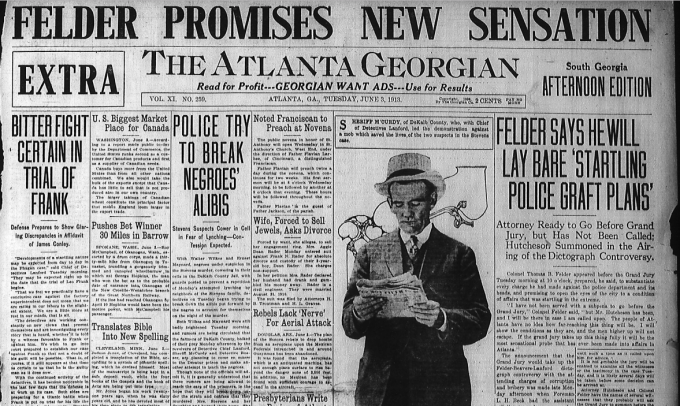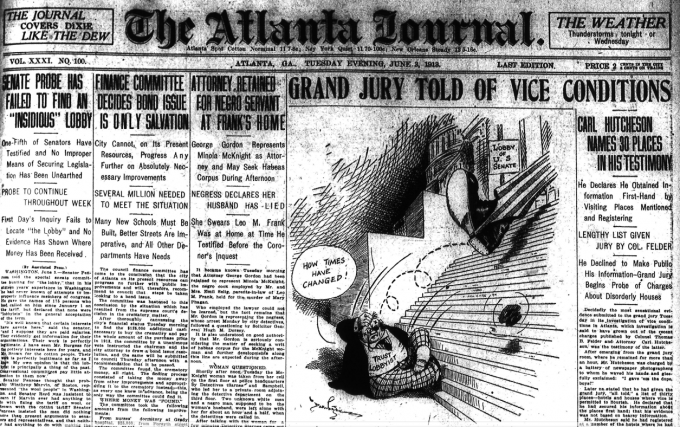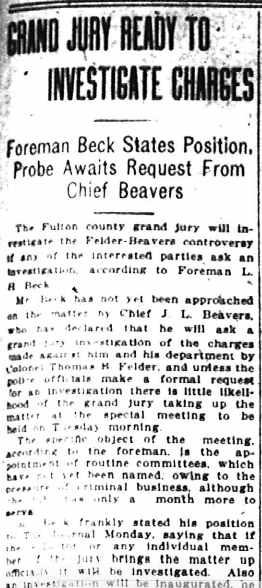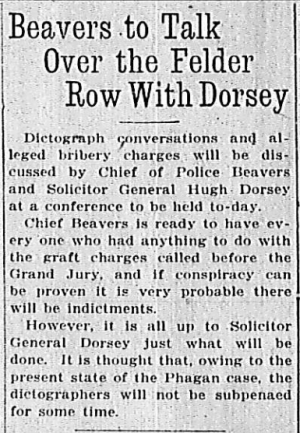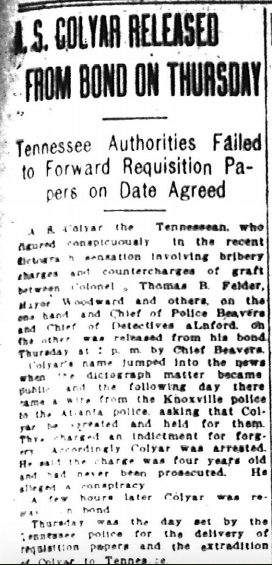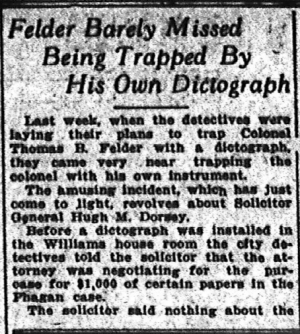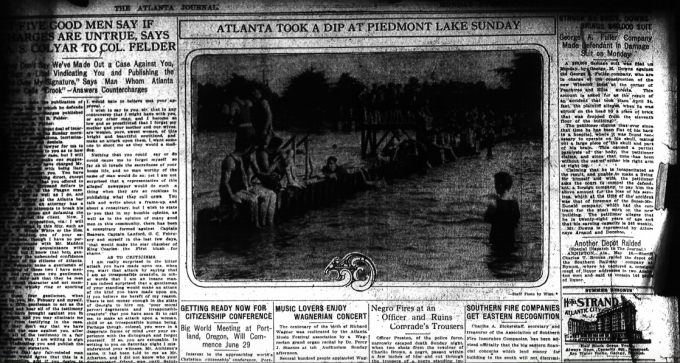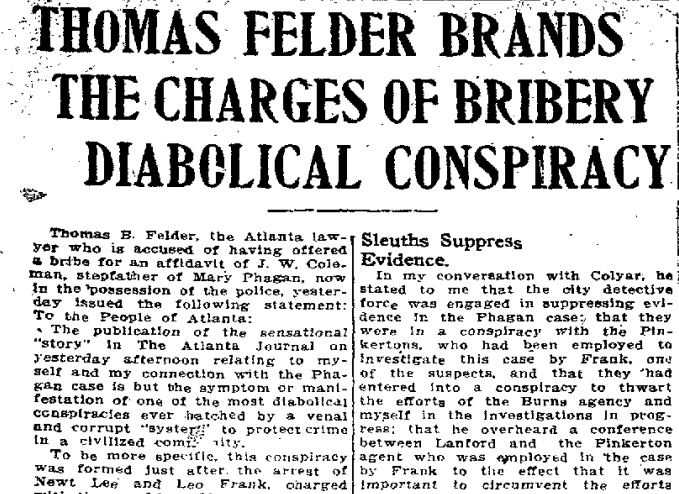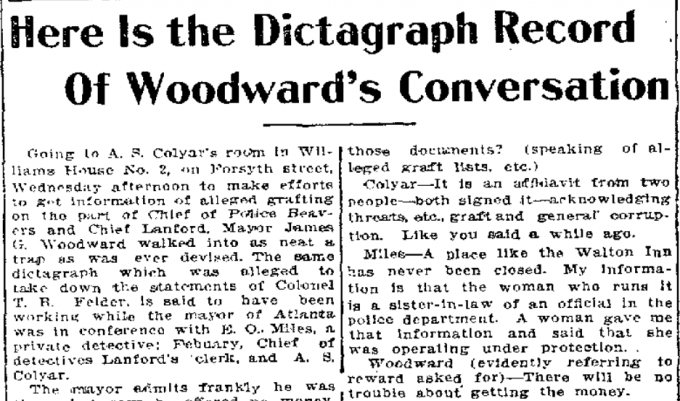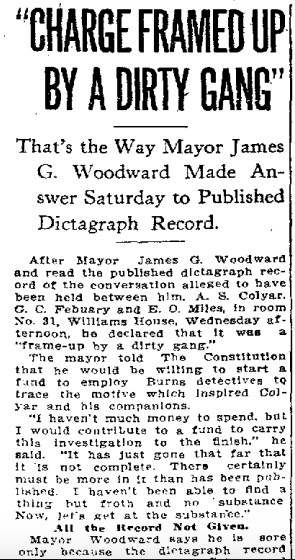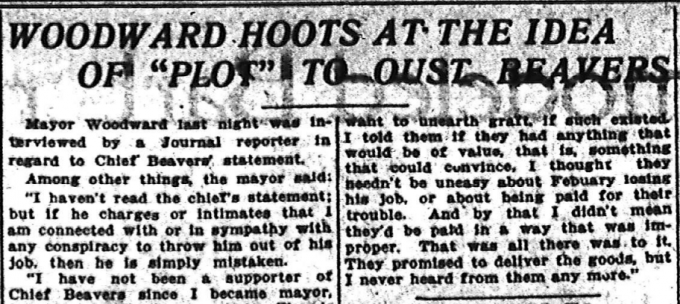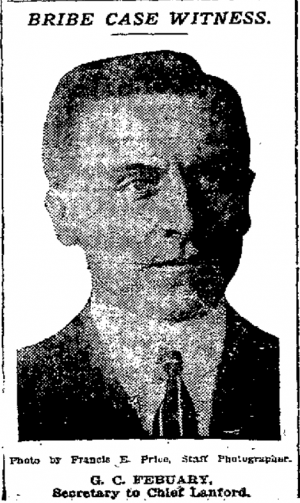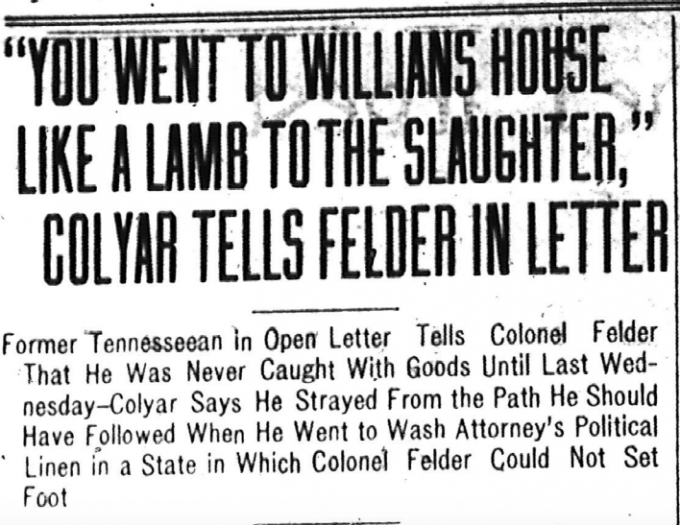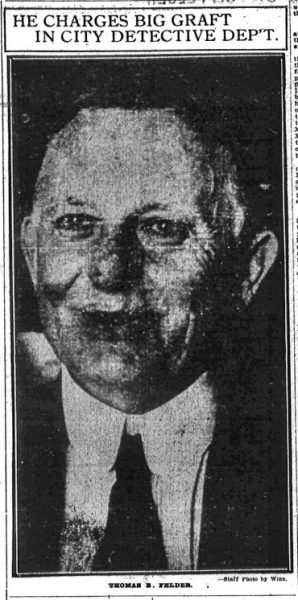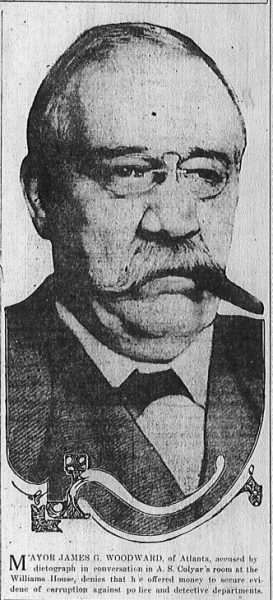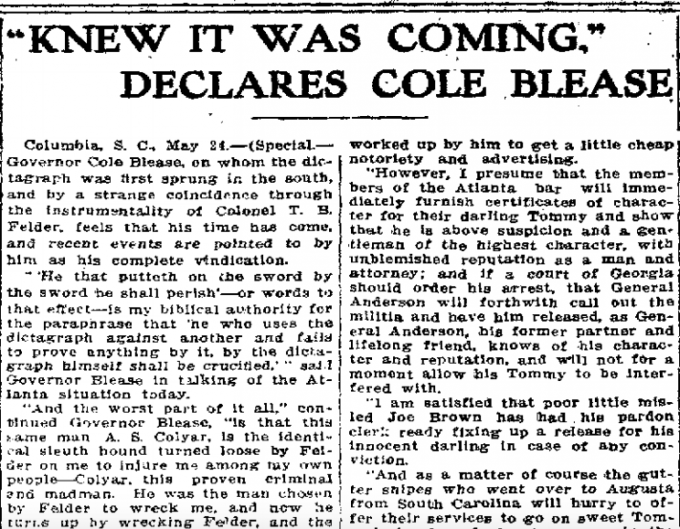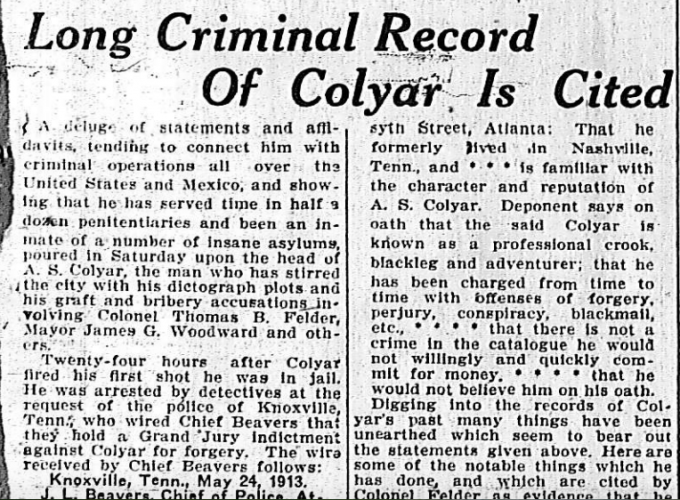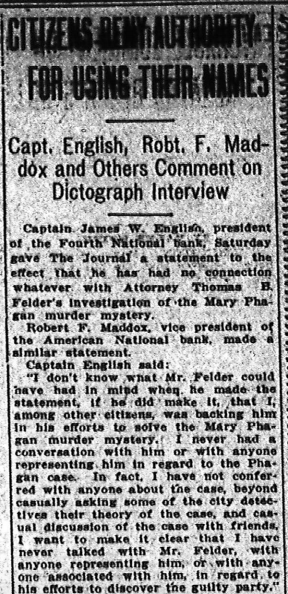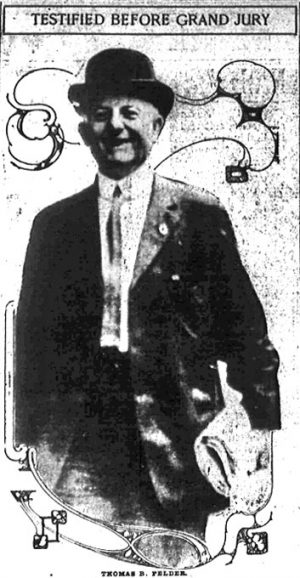 Another in our series of new transcriptions of contemporary articles on the Leo Frank case.
Another in our series of new transcriptions of contemporary articles on the Leo Frank case.
Atlanta Journal
Wednesday, June 4th, 1913
Witnesses Summoned in Dictograph Controversy, Although Foreman Says Vice Probe Is Not Complete
BEAVERS AND FELDER ASK INVESTIGATION
Felder’s Charges Against Lanford to Be Heard With Dictograph Case—Felder Says the Records Are Forged
Four witnesses were called Wednesday morning by the Fulton county grand jury to testify in regard to the existence of vice in Atlanta. They were Colonel Thomas B. Felder, who was on the stand but a few minutes Tuesday; A. J. Young, a real estate man; J. E. Skaggs, agent of the Southern Express company, and Police Chief James L. Beavers.
Neither of these witnesses would indicate along what lines he was questioned by the grand jury. It is understood, however, that Colonel Felder submitted a supplementary list to the list of alleged disorderly houses furnished Tuesday by Attorney Carl Hutcheson and that he also turned over to the grand jury a number of affidavits relative to houses which are operating in the city without police interference.
Colonel Felder is said to have supplied evidence attacking the official integrity and moral character of Detective Chief Newport A. Lanford.
Chief Beavers, it is understood, was questioned at length concerning his vice crusades and the general moral condition of the city as he observes it. He was also asked, it is said, about Attorney Hutcheson’s charge that he had failed to make raids upon disorderly houses which had been reported to him.
Upon leaving the grand jury room Chief Beavers stated that he could not discuss what had transpired there as he had been requested not to do so, but he admitted that he had been asked whether he thought his recent crusade against vice had bettered conditions in the city and that he had replied that it was his opinion that conditions were much better today than they had ever been before.
The chief says he admitted that it was probable that some disorderly houses were operating surreptitiously and that he assured the grand jury that he was diligently endeavoring to obtain evidence against such places and that as fast as he got thme [sic] evidence he made cases against the proprietors and inmates. Continue Reading →

